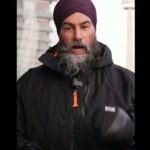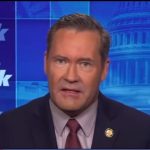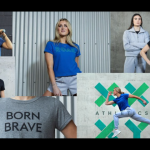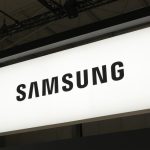“I was the sickest I’ve ever been in my life. I was in bed for three weeks – no taste no smell and sleeping 14 hours a day. I didn’t go to the hospital because it was during that time in New York when hospitals were full and under huge stress,” Scott told News Corp Australia from his New York home.“I just remember the sirens blasting through Manhattan – it was a freaky time.”Working in hospitality meant that Scott – originally from Brisbane – was among those eligible during New York’s early rollout of the vaccine.“I had the Pfizer dose and I had pretty strong effects afterwards – similar to the actual case of COVID I had last March – where I was in bed for 48 hours, but I’d do it again,” Scott says.“Everyone reacts differently, but I think my body has PTSD about feeling like this, it’s a bizarre feeling to know you don’t gave a virus but your body is in full defence mode.”And with a quarter of Australians still reportedly hesitant to get the vaccine, Scott has some first-hand advice. “A new vaccine has a very low potential risk. Getting COVID has a real, definite impact on health, with strong potential long term effects. I’ll take the pro science and common sense option on this one.”“With all these new variants running around, I’m not sure how long my original immunity will last,” adds Scott. “So a boost is welcome.”Jennifer Nguyen who works in the medical industry in New York as a Clinical Trial Data Coordinator, was also given the Pfizer vaccine. “With my job, I don’t work remotely so I had to get it,” Nguyen says.“I had were a very sore arm for two full days where I couldn’t do anything with it as it was painful – I couldn’t even hold my two-year-old son. Even cooking was just not comfortable.”Nguyen, who is originally from Melbourne, says that she her husband and baby son also came down with virus when the pandemic hit New York last March. She says she was hit with flu-like symptoms and a loss of taste and smell, but says she feels “fortunate” it wasn’t worse. But she was keen to get the vaccine as soon as possible.“I think the vaccine is a safe way to help build protection for yourself and the community and when the majority of the population have been vaccinated, the world will be in a better place to get back to normal,” she says. Vaccine rollout Australia“So many experts around the world have worked on this, so much technological advancement during the last decade has helped towards developing the vaccine,” says Nguyen. “We need to put trust in their work just as people entrust us with our roles in society.”Australian nurse Danielle (who requested her surname not be used), works at a Manhattan hospital and saw first-hand the devastation wreaked by the coronavirus on the city.“As a healthcare worker at a busy hospital in one of the pandemic epicentres, I have seen how devastating this virus can be on COVID patients and their loved ones.“New York hospitals have been stretched to the limit, overwhelmed and resources spread thin.”Danielle, who hails from Sydney, told News Corp Australia she got the Pfizer vaccine to “protect myself and to help reduce the spread of COVID which will relieve the pressure on the healthcare system and move us towards normal living”. She also has some advice for friends and family back home.“I tell my family and friends in Australia that things can get out of hand in the blink of an eye and that is why getting the vaccine is so important, even with low cases numbers – you would never want to experience what we went through here in New York.” NED-3328-COVID-19-vaccines-Options-and-how-they-work
Powered by WPeMatico






